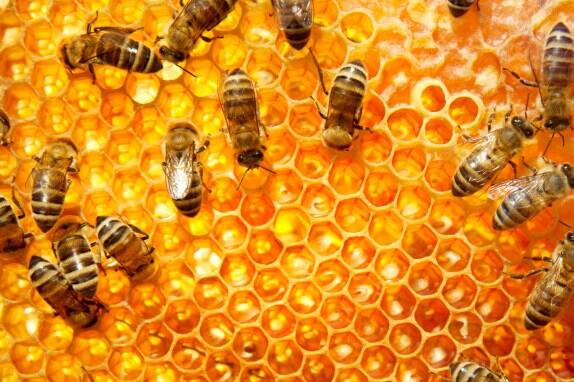Australian researchers have equipped 10 thousand bees from Tasmania with microchips that take energy flapping their wings, to find out why these insects are disappearing. These microchips report the life and movement of bees computers the size of a postage stamp placed in hives.
Greenpeace has warned that bee populations in Europe decreased 25 percent between 1985 and 2005. Recent data also reveal that 46 percent of the 68 species of bumblebees are in decline Europeans and 24 percent endangered.
There are several factors that supposedly threaten pollinators: habitat loss, the practices of industrialized agriculture, as monocultures (reduced availability and diversity of food for these insects), the use of pesticides; pests and diseases;invasive species of plants and animals; and the impacts of climate change.
To deepen this problem, Australian researchers at the Commonwealth Scientific and Industrial Resear Organization(CSIRO), members of VizzzBees project have equipped 10 thousand bees in Tasmania with micro-chips RFID, 2.55 mm, which are attached to his back and that feed energy energy flowing flapping of these insects.
At the same time, hives inhabited these bees have been equipped with mini-computers, the size of a postage stamp, which record all activity of bees when entering and leaving the premises.
The idea of this experiment is to count the number of insects at all times inside and outside the hive, their comings and goings, if they change their ways, when and why. These computers also record the temperature inside the hive, humidity, air composition, and provide data to researchers in real time via Wifi or Bluetooth.
The research is completed with information about the behavior of bees obtained directly by observation in the field, around the hive, to find out if pesticides, changes in the ecosystem or human activities affect insects. Below are determined correlations, data and links with bees will be analyzed and will determine if the progressive disappearance of bees can be stopped or slowed.
Economic impact
It has been estimated that the economic value of the work of pollinating bees could be around 265 billion euros annually worldwide, 22 billion for Europe and more than 2 000 400 million for Spain, recently calculated by Greenpeace in its report “Food under threat.”
The United Nations Food and Agriculture Organization (FAO acronym) has shown in the report “UNEP Emerging Issues” that the decline of bees is happening around the world and other pollinators are in the same situation. In fact, recent restrictions in the EU to four insecticides are based on recent scientific evidence confirming the harmfulness of these products for bees.
In addition, the European Food Safety Authority (EFSA, for its acronym in English) has expressed concerns regarding two neonicotinoid pesticides, since it could also affect the development of the nervous system of humans.
Greenpeace warns that we could attend an irreversible decline in pollinating insect populations, which would imply a loss of productivity of the vast majority of crops (in Europe 84 percent of 264 crops depend on pollination by insects) and even the infeasibility of others.











